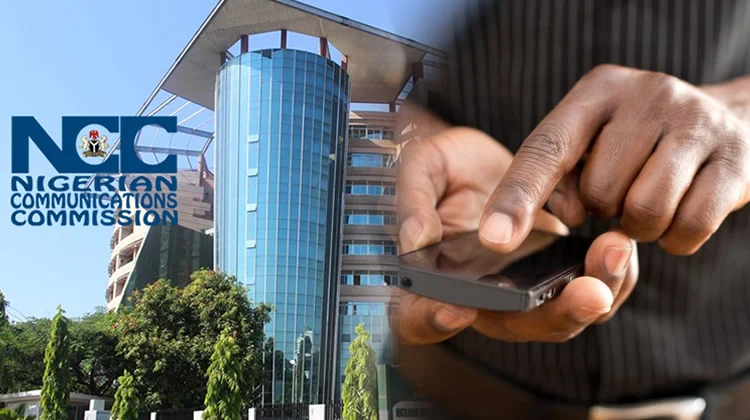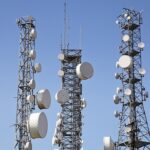The plan to implement five per cent excise duty on telecom services, despite 7.5 per cent Value Added Tax (VAT) that Nigerians are already paying for goods and services, is still generating controversies in the telecom sector.
If the policy is eventually implemented, telecom subscribers would pay five per cent of the total cost of the voice call they make. The payment will be deducted from the subscribers’ account by the telecom operator, who will remit the same to the government. This will increase voice call tariff by 100 %.
- NIGERIA DAILY: How Kano Traders Lost N200m Textile, 300 Shops To Market Flood
- NFF presidential aspirant Akinwunmi laments deplorable state of Nigerian football
“The five per cent excise duty has been in the Finance Act 2020 but hasn’t been implemented”, the Minister of Finance, Budget and National Planning, Mrs Zainab Ahmed, said at a stakeholders forum on excise duty in Abuja recently.
Mrs Ahmed was represented at the event by an assistant director, Tax Policy, Federal Ministry of Finance, Budget and National Planning, Musa Umar, while the assistant chief officer in the ministry, Frank Oshanipin, did the ministry’s presentation.
The ministry said the delay in implementation of the five per cent excise duty was as a result of the government’s engagement with stakeholders. It added that payments would be made on the 21st of every month.
It further said: “The duty rate wasn’t captured in the act because it is the responsibility of the president to fix rate on excise duties and he has fixed five per cent as the duty rate for telecommunication services, which include GSM services.
“It is public knowledge that our revenue cannot run our financial obligations, so to that effect we are to shift our attention to non-oil revenue. The responsibility of generating revenue to run the government lies with us all.”
The chairman of the Association of Licensed Telecom Operators of Nigeria (ALTON), Gbenga Adebayo, however said operators would not be able to subsidise the five per cent excise duty on telecom services as a result of the 39 multiple taxes that they pay, coupled with the epileptic power situation that had compelled operators to spend so much on diesel.
The president of the Association of Telecommunications Companies of Nigeria, (ATCON), Ikechukwu Nnamani, who was represented by the executive secretary of ATCON, Ajibola Olude, said, “The five per cent excise duty on telecom services would not be in tandem with present realities,” adding that the industry was bleeding.
Olude suggested that the idea be stepped down as it would lead to job loss.
“The idea is untimely and not well intended, because the industry is not doing well currently”, he said.
However, Mrs Ahmed insisted on the implementation of the proposed five percent telecommunication tax on calls and data. In a statement by the Special Adviser on Media to the minister, Mr Tanko Abdullahi, in Abuja recently, the minister cited the Finance Act 2020 as the enabling legislation for the tax.
But the finance minister said she would implement the tax on all voice calls, SMS and data services, in addition to the existing 7.5 percent Value Added Tax, VAT, paid for goods and services across all sectors of the economy.
The five per cent excise duty came to the fore during a recent stakeholders’ meeting, organised by the Nigerian Communications Commission, NCC, the telecoms industry regulator.
At that meeting, the finance minister, as represented by the Assistant Director Umar said: “The five percent excise duty has been in the Finance Act 2020, but has never been implemented.
“Henceforth, the five percent excise duty will be collected by telecom operators and payment made to the federal government on a monthly basis, on or before 21st of every month.”
Mrs Ahmed said there was a circular stating the planned hike, which was addressed to the communication minister and other relevant ministries and agencies of government.
She said, “The circular Referenced No. F. 17417/VI/286 dated 1st March, 2022, and titled “Approval for Implementation of the 2022 Fiscal Policy Measures and Tariff Amendments” was addressed to different ministers, including the minister of Communications and Digital Economy and other heads of government agencies.
“The circular was addressed to the Secretary to the Government of the Federation, Attorney-General of The Federation, ministers of Industry, Trade and Investment, Agriculture and Rural development, Mines and Steel and Development.
“It, therefore, means that all stakeholders have by that singular provision been aware of the act.
“The excise duty on telecommunication services provided in Nigeria introduced through the Finance Act, 2020 with statutory enactment on 1st January, 2021 is yet to be implemented considering the need to ensure reasonable transition period before the implementation of the new tax, as well as providing clarity to all stakeholders on implementation modalities.
“As a matter of emphasis, Mrs Ahmed had in a circular dated 1st March, 2022, informed the Nigeria Customs Service (NCS) and other heads of government ministries, departments and agencies (MDAs), including the Federal Ministry of Communication & Digital Economy about Mr President’s approval of the implementation of the five percent excise duty on telecommunication services with effect from 1st June, 2022.
“An issue as serious as the excise tariff cannot be taken single handedly, as all stakeholders and agencies have been involved including Manufacturers Association of Nigeria (MAN) and Association of Telecom Operators of Nigeria (ALTON), who wrote to the ministry to be involved in the modalities for implementation of the excise duty.”
But the minister of Communications and Digital Economy, Prof. Isa Ali Pantami, and the Nigerian Communications Commission (NCC) opposed the tax which they said was ill-timed.
Pantami in his address at the maiden edition of the Nigerian Telecommunications Indigenous Content EXPO (NTICE) themed
Continued on www.dailytrust.com
‘Stimulating the Development of Indigenous Content through innovation and commercialisation’ in Lagos stressed the need for government and stakeholders to continue to support the sector, and not unnecessarily put burden on it.
“The minister of Communications and Digital Economy is not satisfied with any effort to introduce excise duty on telecommunications. When VAT was increased to 7.5percent, I was not consulted; I only heard the announcement and I think there is something questionable, and I am glad that we are on the same page with our national assembly members. They too have not been consulted despite the fact that they are part of the committee.
“Beyond making our position known, we will go behind the scenes and go against any policy that will destroy the digital economy sector. This is a sector we cherish so much and we are ready to go to any extent, legitimately and legally to defend its interest,” Prof. Pantami said.
Similarly, the Executive Vice Chairman/CEO of the NCC, Prof. Umar Garba Danbatta, who was represented at the stakeholders meeting in Abuja by the Executive Commissioner, Stakeholders Management, Adeleke Adewolu, in his opening remarks said: “As communicated in the federal government circular of March 1, 2022, the five per cent excise duty was to have been implemented as part of the 2022 Fiscal Policy Measures, but the industry considered the earlier scheduled commencement date of June 1, 2022 inadequate and we duly took this up with the federal government.”
Also, NCC’s director of Public Affairs, Mr Reuben Mouka, said the “minister had made his position public and that is also the position of NCC.”
Mouka said NCC had always been ensuring the call and data tariffs go down.
The NCC spokesman told Daily Trust that the commission had been a vanguard of consistent reduction in telecoms services even despite rising cost of operation by the operators.
He added that the 5% excise duty is not coming from NCC. In fact, “our minister’s position is clear about it.
“The NCC has been consumer-centric in all its activities,” he said.
Through effective regulatory efforts, he said the commission had ensured that the cost of making calls has crashed from around N70 per a minute a few years ago to around N20 per minute now.
“We have been preventing the mobile operators from just increasing tariffs anyhow. Tariff increase and promotion of any kind that may lead to traffic increase are reviewed by NCC to ensure they are fair to consumers,” he added.
He explained that NCC consults widely; it carries out cost-based studies to ensure evidence-based regulatory interventions that help the consumers to access telecoms services at moderate prices.
The NCC, he said, is presently working to crash the cost of data to N390 per a gigabyte of data by 2025, as contained in the Nigerian National Broadband Plan ( NNBP).
On multiple taxation, he said the NCC had gone into agreement with many states in the country on reduction of taxes on telecom operators. He reiterated that the NCC is not party to the 5% excise duty and the commission is always an advocate of lower tariffs for the benefits of the consumers.
“That is why NCC does not allow any operators to just impose tariffs arbitrarily.
“Recently, when ALTON threatened to increase tariffs citing rising cost of operations, NCC even issued a statement moving against any increment,” he said.
He said telecom is the only sector where the cost of getting services has been going down since liberalisation of the sector despite rising cost of operations incurred by the operators.
He said this is linked to effective regulations of the sector where NCC ensures robust and healthy competition among the licensees.

 Join Daily Trust WhatsApp Community For Quick Access To News and Happenings Around You.
Join Daily Trust WhatsApp Community For Quick Access To News and Happenings Around You.


